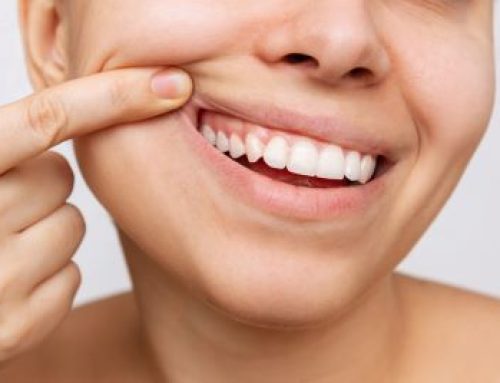 Halitosis or bad breath is not a rare condition, it affects almost 25% of adults. Though there can be many different reasons responsible for halitosis, the most common one seems to be bad oral hygiene. Since halitosis is a common condition, we dedicate this article to discussing its causes, symptoms, and treatment options.
Halitosis or bad breath is not a rare condition, it affects almost 25% of adults. Though there can be many different reasons responsible for halitosis, the most common one seems to be bad oral hygiene. Since halitosis is a common condition, we dedicate this article to discussing its causes, symptoms, and treatment options.
Causes
Bad Oral Hygiene
Believe it or not, halitosis or bad breath is the third most common reason that draws people to dentists. This is a problem that affects every one in four adults. Many different factors contribute to this problem. However, the most common one is bad oral hygiene. People who do not brush and flush regularly have food particles stuck in their mouth, between the teeth. These food particles become the source of sulfur, which is a contributing factor for halitosis. If bad oral hygiene is why you suffer from halitosis, start brushing twice a day and floss your teeth regularly. That apart, stay hydrated and quit smoking, if you do. If you continue to experience bad breath, see a dentist. You may be dealing with other issues here.
Crash Diets
Some diets, especially the low-carb ones, cause the fats to break down, in the process facilitating the release of chemicals called ketones. These ketones are responsible for a particular kind of bad breath.
Tobacco Consumption
Tobacco consumption makes people susceptible to gum diseases, which in turn, is strongly associated with bad breath.
Medicines and Dry Mouth
Medicines accelerate the healing process, but in doing so, they also lead to reduced saliva production. Since one of the many functions of saliva is mouth cleansing, reduced saliva production leads to bad breath. This is also the reason why people with dry mouth suffer from bad breath. Many medical drugs also release strong chemicals, which in turn, again cause bad breath.
Ketoacidosis, Bronschiectasis, and Other Conditions
Ketoacidosis is a condition in which the body starts breaking fat, instead of sugar, to release energy. People suffering from diabetes suffer from this condition. Ketoacidosis leads to the release of ketones, which in turn, leads to bad mouth odour.
Bronchiectasis, on the other hand, blocks the body’s airways, which in turn, leads to mucus build up and therefore, strong mouth odour.
Other than diabetes and ketoacidosis, many other conditions, such as metabolic disorders, liver problems, gastroesophageal reflux disease (GERD), cancer, bowel obstruction, etc. are also linked with bad mouth odour.
Symptoms and Treatment
If you think you suffer from bad breath but are not sure, it’s best to confirm with someone you trust, like a friend or family member. If you do not want to ask anyone, there is a simple test you can perform at home. Lick the back of your hand and leave the area to dry for about 5-10 minutes. If after drying, the area smells bad, you suffer from halitosis.
The good news is halitosis is not a permanent problem. You can get rid of the bad smell by practising good oral hygiene. Regularly brush your teeth, floss when you can, and use a dentist-recommended mouthwash gel. If a disease or physical condition is responsible for your bad breath, see a dentist.
If you are looking for a dentist, HPS Advanced Dental Care would love to see you. Dr. Heather is gladly accepting new patients.
We are located at 4741 24 Mile Rd. Shelby Township, MI 48316, and we can be reached at (248) 652-0024. We look forward to meeting you!





